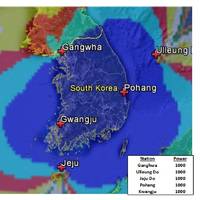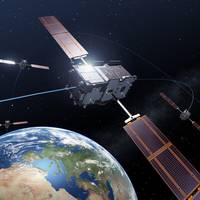ASGARD: Developing an Anti-Spoofing Weapon

Saab and GMV are collaborating in ASGARD, an EU-funded project that aims to improve maritime security when using GNSS and OSNMA. The project addresses the growing threat of GNSS spoofing and other cyberattacks on navigation systems used in the maritime industry.The ASGARD project, run by Saab and GMV, is an ambitious European Union (EU) initiative that aims to develop advanced technologies to improve Global Navigation Satellite System (GNSS) and Open Service Navigation Message Authentication (OSNMA) security in maritime environments.
Threats to Global Navigation Satellite Systems

Originally developed to guide Allied convoys safely across the Atlantic, the use of synchronized low frequency radio signals as a navigational aid revolutionized modern maritime navigation in the 1940s. Faced with operating ships and aircraft over vast areas, researchers pioneered the use of radio signals to aid navigation in regions where poor weather conditions made traditional methods—such as dead reckoning and celestial navigation—exceptionally difficult. This system was eventually named LORAN.
Galileo Satellite SAR Package Activated

Galileo’s search and rescue system (SAR) passes first space test to begin major expansion of the Cospas–Sarsat network. The second pair of Europe’s Galileo navigation satellites – launched together on 12 October last year – are the first of the constellation to host SAR search and rescue repeaters. These can pick up UHF signals from emergency beacons aboard ships and aircraft or carried by individuals, then pass them on to local authorities for rescue. Cospas is a Russian acronym for ‘Space System for the Search of Vessels in Distress’…
Feature: Losing Contact ... Not an Option
Maritime communications is an estimated $1 billion industry, encompassing ship operators, merchant fleets, governments and private yacht owners. There is arguably no more quickly evolving technical sector in the maritime market than the satellite communications niche. Safety, operational efficiency and quality of life onboard vessels of all type and size today more than ever depends on clear, reliable and cost effective satellite communication services and products. The following reports on recent advances from major service, product and system suppliers. The year started with news that Connexion by Boeing, a business unit of The Boeing Company, would roll-out its high speed satellite broadband capability for the maritime industry.
Galileo Gets 450M Euros to Proceed
The European Transport Council (i.e. Euro necessary to launch the Galileo satellite navigation project. without delay. Galileo has been stalled for 15 months. launch and thus increased the pressure on the Transport Council. was made possible by a compromise regarding the composition of the Joint Authority. process at the end of 2003. continue using the free GPS system will be able to do so as the signal will not be blocked. case, Galileo will have several levels of service, some of which will also be free. Transport and Energy Commissioner, Mrs. charge for those services which are of a higher quality than GPS currently provides. industry unless it wishes to avail itself of the reportedly 'superior' capabilities of Galileo.
New Satellite System Could Find Sunken Ships
A new European Union-backed radio satellite system could help find sunken ships, EU officials said, promoting the potential benefits of the "Galileo" satellite navigation system. The EU hopes to have the system up and running by 2005 at a potential cost to taxpayers of around $2.9 billion, although the EU hopes private firms will contribute 50 percent. The EU this month secured the radio frequencies needed to launch the system at an international conference in Turkey. More detailed plans will be drawn up before the end of the year. Galileo, a European rival to military global positioning systems operated by the United States and Russia, will be able to locate objects or people to within 16.4 ft. (5 m).
First Galileo Satellite Launched
The European Commission (EC) stated that the first of 30 planned Galileo satellites has been launched into orbit. When completed, the Galileo system will provide precise global positioning and timing services worldwide. Source: HK Law
Galileo Must Proceed Financing Difficulties
The European Commission (EC) has stated that the Galileo satellite navigation system must go ahead on schedule despite financial contribution delays experienced by the European Space Agency (ESA). Galileo is being designed to compete with the U.S. Global Positioning System (GPS) in the satellite navigation market. Source: HK Law









